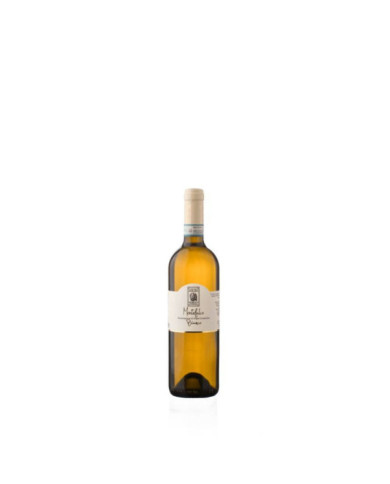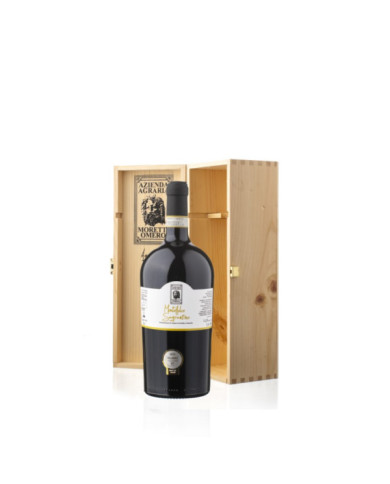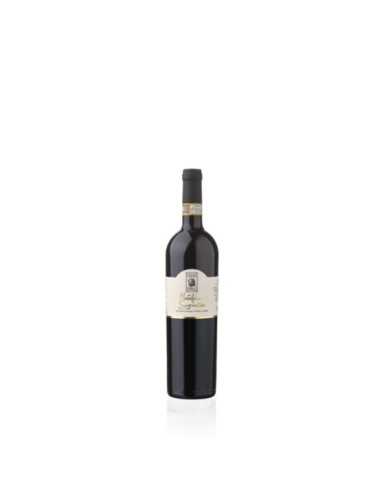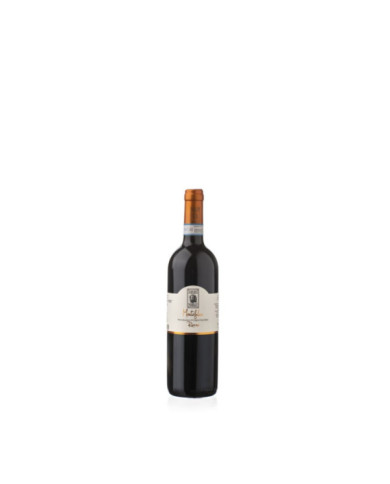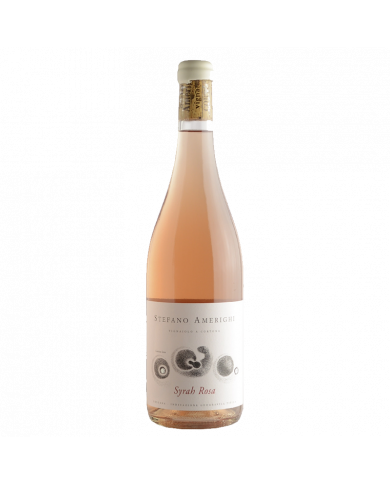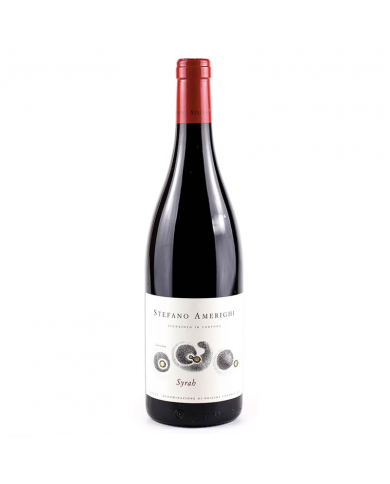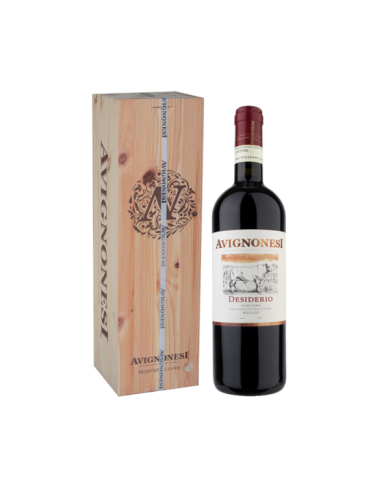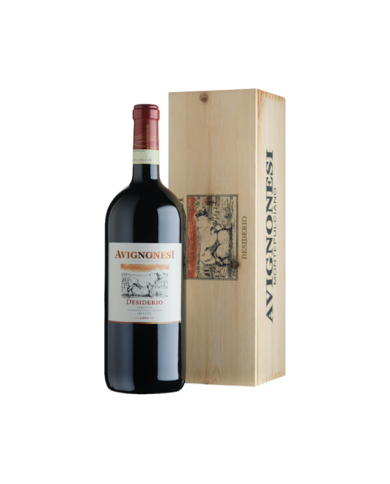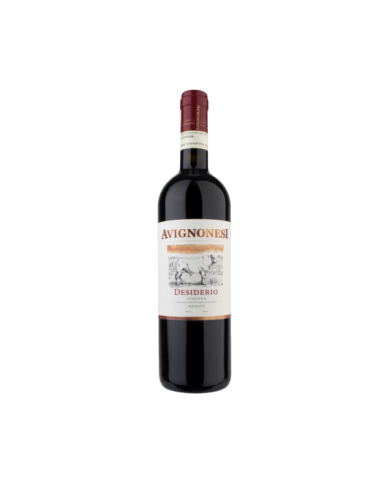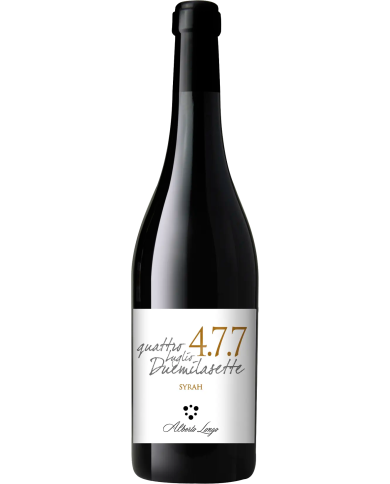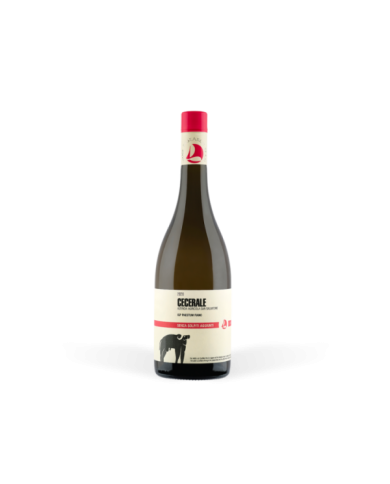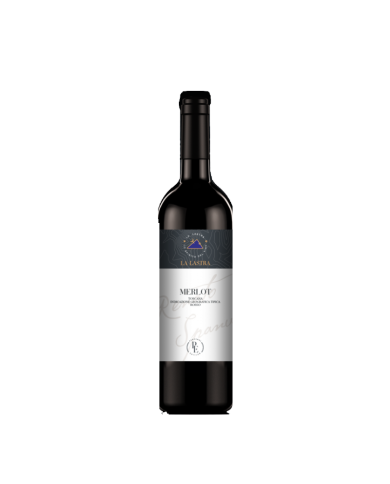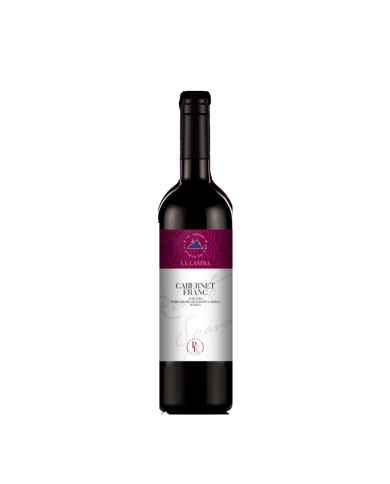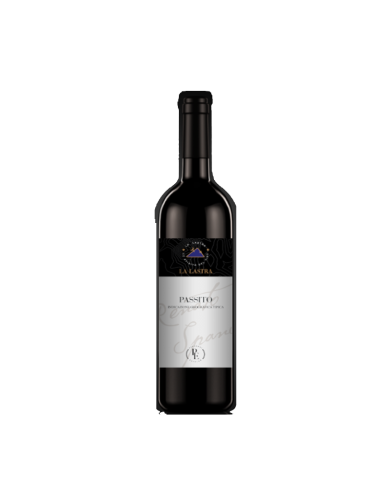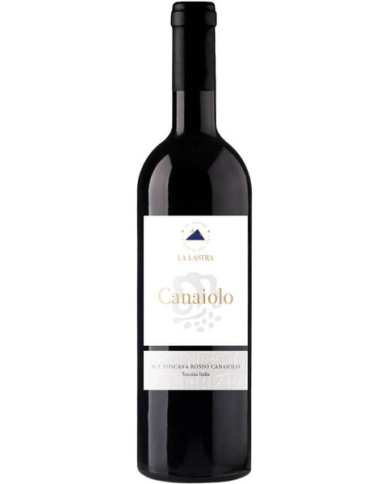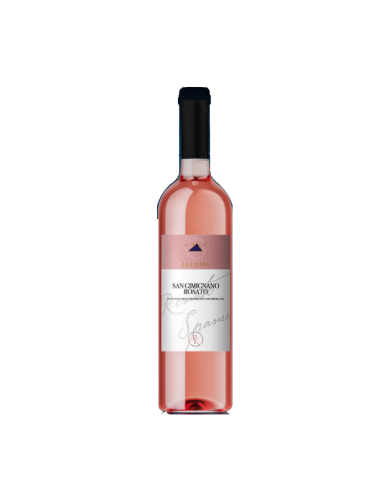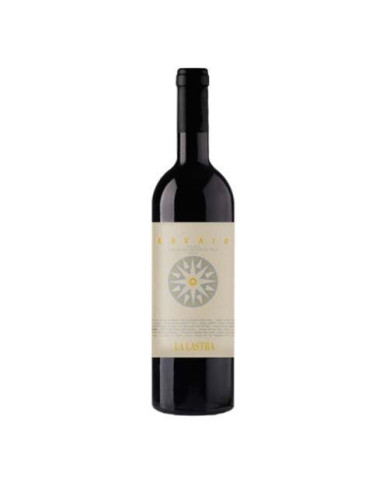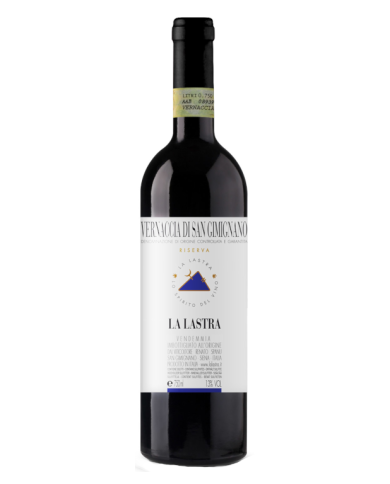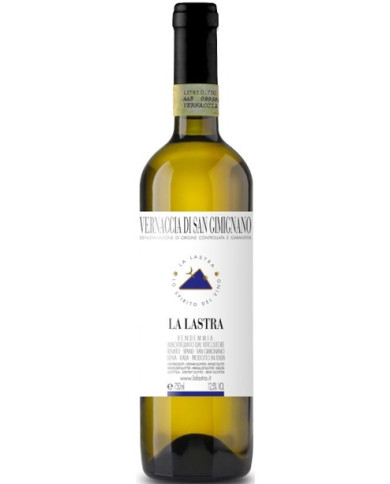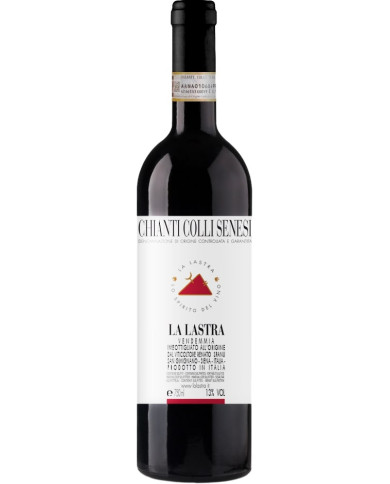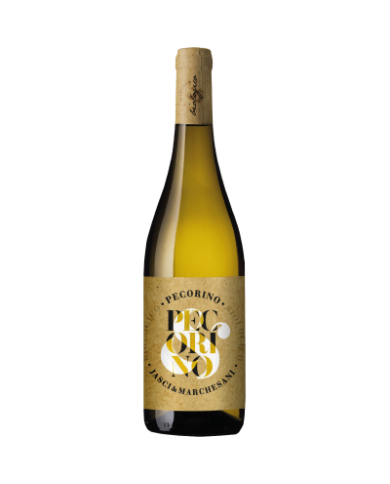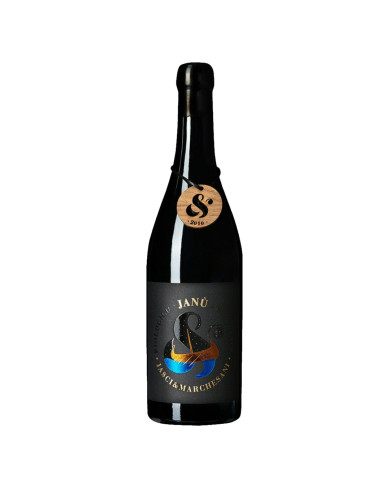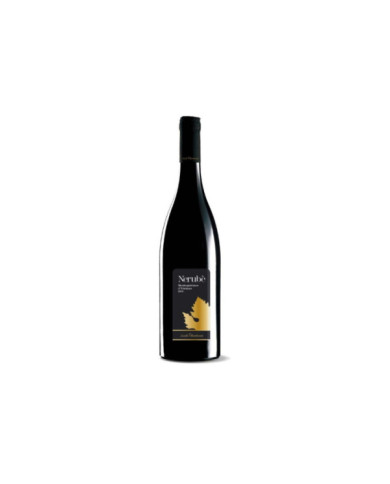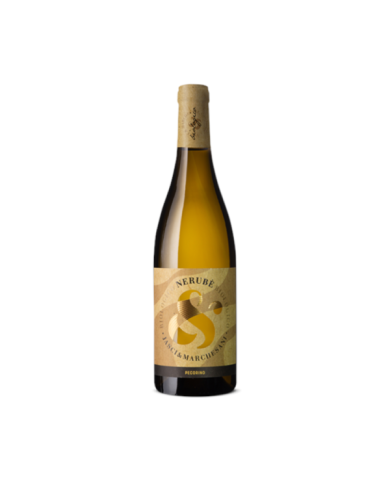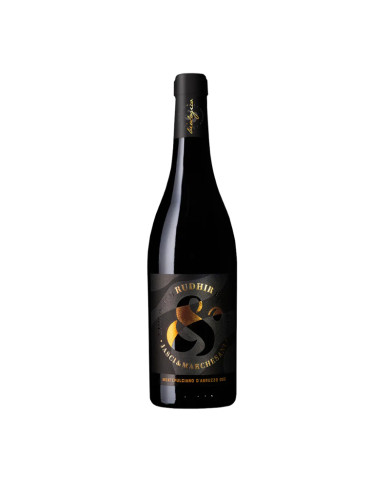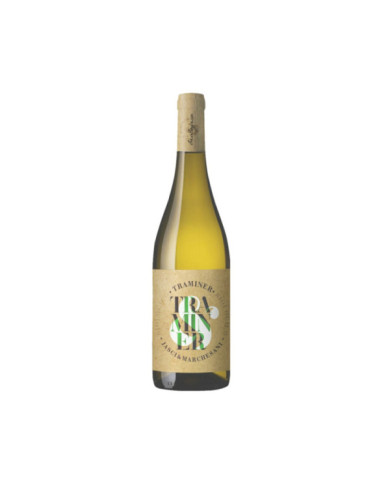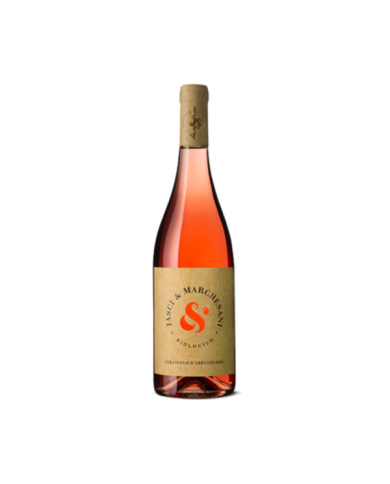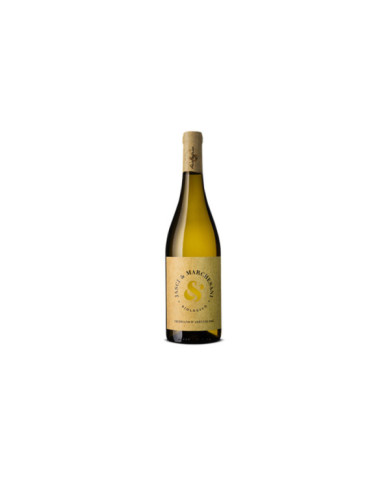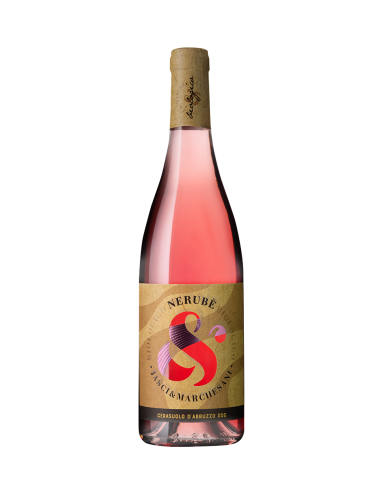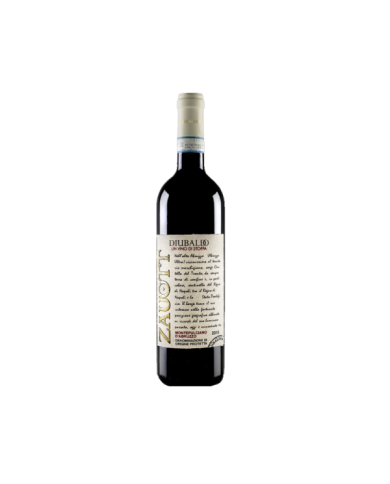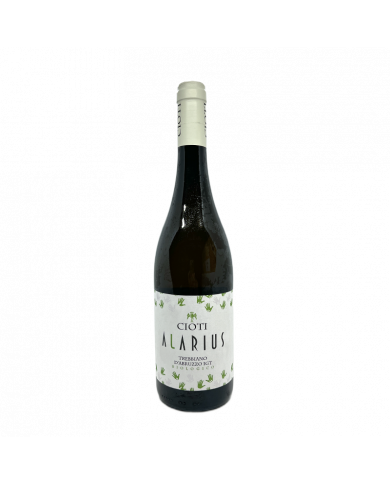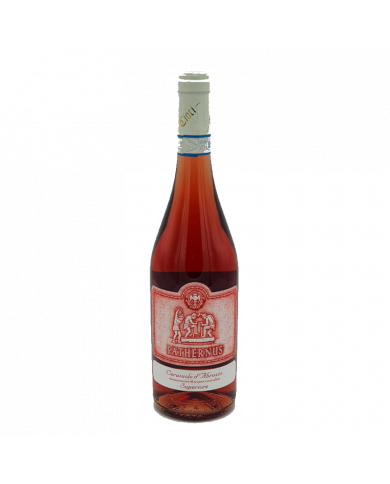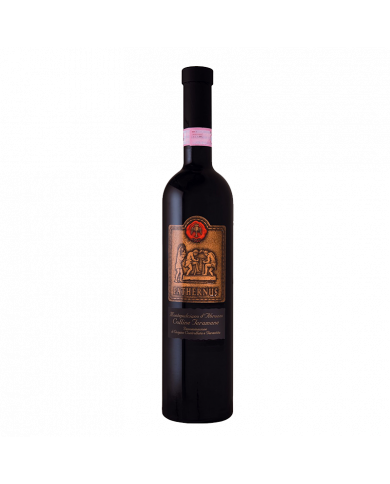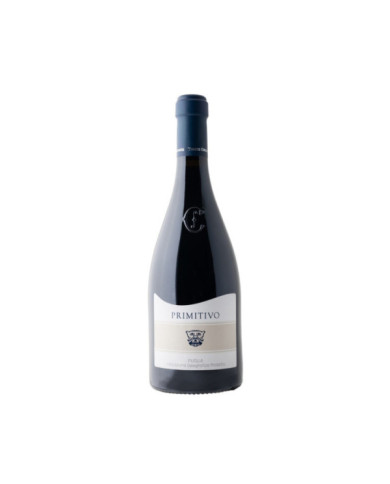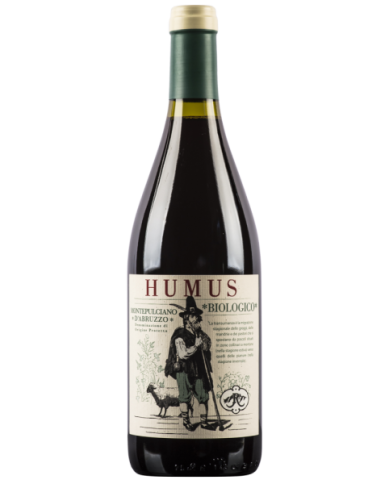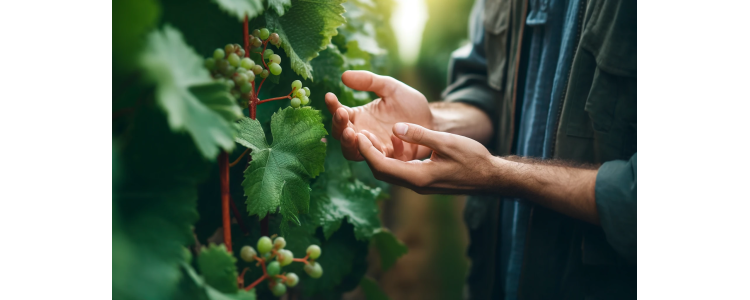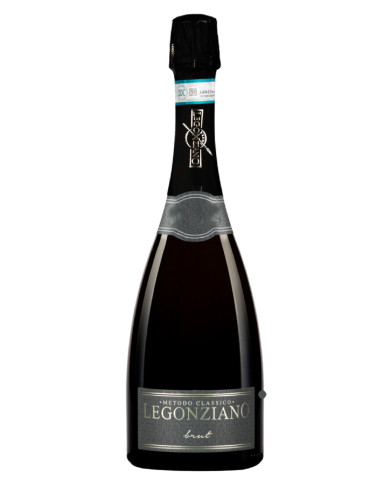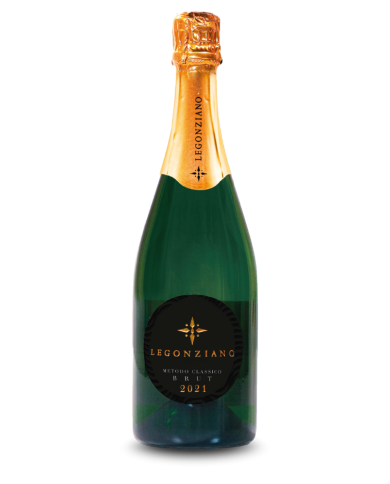Olfactory elegance with hints of yellow pulp fruit, almond flowers. Nice tension towards hazelnut notes. In the mouth breadth and enveloping texture. Long finish that is revived thanks to the acidity of the Spoletino (Trebbiano Spoletino). The grapes are softly pressed, then the must undergoes static clarification. Subsequently it is fermented in steel tanks at a controlled temperature of 20┬░C. Natural decantation for three months in steel.
Vibrant ruby red. Small red fruits on the nose, including the typical hint of blackberries. Balsamic hints. Elegant and powerful. Persistent finish with returns of berries and spices. Fermentation 15 days. Maceration 20 days on the skins. Contact with fine lees for 6 months. Batonnage.
Vibrant ruby red. Small red fruits on the nose, including the typical hint of blackberries. Balsamic hints. Elegant and powerful. Persistent finish with returns of berries and spices. Fermentation 15 days. Maceration 20 days on the skins. Contact with fine lees for 6 months. Batonnage.
Central core of succulent wild berries, violet flowers. Full-bodied wine with a fine tannic texture. Fruity finish with light spiciness.
Bright coral pink color, the nose is fruity and with hints that recall red fruit, in the mouth it is round, fresh, characterized by a slight spiciness, and persistent in length.
This Syrah is Stefano Amerighi 's representative wine, the result of his work and his idea. A broad idea that goes from the soil to the plant to the balance of nature.
With a warm and sensual character, full of fruity notes and sweet spices, Desiderio 2016 goes perfectly with savory dishes, such as roast lamb, aged cheeses and game. Intense ruby red in color, this wine reveals an inviting bouquet of black cherries and blackberries with notes of eucalyptus and fresh mint, underlined by elegant sensors of roses and sandalwood. Well structured and very persistent, in the mouth it is enveloping and caressing, characterized by fruity notes and fine-grained tannins.
With a warm and sensual character, full of fruity notes and sweet spices, Desiderio 2016 goes perfectly with savory dishes, such as roast lamb, aged cheeses and game. Intense ruby red in color, this wine reveals an inviting bouquet of black cherries and blackberries with notes of eucalyptus and fresh mint, underlined by elegant sensors of roses and sandalwood. Well structured and very persistent, in the mouth it is enveloping and caressing, characterized by fruity notes and fine-grained tannins.
Intense ruby red to the eye. Elegant on the nose, it initially gives fruity hints of blackberries, morello cherries and raspberries, followed by flavors of aromatic herbs, licorice, chocolate and coffee beans. Precious shades of goudron and cedar wood complete the olfactory picture. The palate is refined and important, well developed in the tannic texture, with a good structure and long persistence. Requires to be combined with meat preparations. Excellent to accompany stewed kid.
In Avignonesi , the pursuit of excellence goes hand in hand with the experimentation of 100% Tuscan winemaking processes, with the intention of allowing the habitat to prevail over external influences. For this particular organic wine, Avignonesi has set aside steel and oak in favor of Tuscan clay. The name Da-Di , the Chinese term for " earth-soil ", was chosen to underline this peculiarity.
Intense and enveloping wine, with notes of red berries and spicy aromas.
When we took over our small company close to the city of Siena twenty years ago, in the first place we replanted a large part of the vineyards and, on the occasion, above all out of curiosity and a great desire for knowledge and experimentation, we introduced into our viticultural heritage proudly Tuscan, even a very modest quantity of Merlot vines. Since this very small vineyard has reached a good physiological maturity we vinify it in purity and we mature it in a French oak tonneau. The result is a wine of excellence, truly particular and intriguing that we offer, given the small and non-reproducible quantity, in our Personal Edition.
When we took over our small company twenty years ago near the city of Siena, in addition to a very small plot of Merlot, we planted 7 rows of Cabernet Franc. The first in Tuscany, not to be different, but because by studying our terroir we realized that it had those characteristics whereby the Cabernet Franc grapes, if properly ripened and well vinified and aged, could offer us a wine that is not for everyone , but exciting and strongly character. The first years of production disappointed our expectations, a wine that was too herbaceous and tannic but, from the tenth harvest, when the plants reached their physiological maturity, here was the big surprise: a fruity wine where the raspberry replaced the herbaceous, thick, intense and almost moving. Given the very small quantity that we are able to produce, it has rightfully become part of the wines of our Personal Edition.
In spring 2019, after years of research in the San Gimignano area, we finally found and acquired some vineyards with rare and particular characteristics: old plants on fresh silt-sandy soils, rich in water and organic for over forty years. From the Rosi vineyard and produced with only organic grapes, our Rosato wine is born. The white vinification of the noble Sangiovese grapes has generated a wine with a pale pink color, a fruity and floral bouquet, an elegant and savory taste. Given the small quantity, it has entered our Personal Edition by right.
Our first edition is that of 1995 entirely produced in San Gimignano and that, even today, when we taste one of the last bottles that we have kept in the cellar excites us! Since 2017, when our vineyards in Siena have reached a good maturity, our persevering oenological curiosity to understand how the same blend produced in a different territory would have behaved has meant that, thanks to the fantastic 2017 harvest, we have put to mature a barrique of Sangiovese, one of Merlot and one of Cabernet Sauvignon. After 18 months of blending and, with great emotion, we understood that that very little wine of great depth deserved to be bottled and here is our Rovaio Personal Edition.
Our Chianti Colli Senesi is born from the ancient typicality of this centenary wine aimed at interpreting a new tradition. The vines used are those of the past, only autochthonous and Tuscan, red and white. The Sangiovese bunches, which are 95% of our Chianti, are those of the oldest plants we have in the company, which ripen well beyond the time of the new clones, small and loose bunches, but with a thick skin rich in polyphenols and aromas , crunchy and sugary.
The carefully selected grapes are pressed directly with the aid of inert gases in order to avoid any potential oxidation. The must obtained is clarified with a stop at a low temperature which allows decantation. The clean fraction is sent to fermentation with the addition of a part of skins and indigenous yeasts. During the fermentation phase, regular punching down is carried out which allows the extraction of natural tannins from the peel which preserve the integrity of the wine. At the end of fermentation, the wine obtained is decanted with the aid of inert gases and ages for 3 months on the yeasts that carried out the fermentation, followed by stabilization and bottling.
Lo Jan├╣ is the top of the range of Montepulcianos of the company. Hand harvesting of the grapes, maceration on the skins for 25 days, vinification in red and aging in double new barrique for 8 months + 8 months. Compact and deep goblet, of a beautiful ruby red. The olfactory reveals an incredible complexity, ranging from hints of dark fruit in alcohol, to toasted notes that recall hazelnuts, to slightly vanilla scents, to beautiful sensations of tobacco and dark chocolate. The sip is full and enveloping, long, pleasantly balanced. Closing on notes of bitter chocolate.
Pecorino is an extremely representative white grape variety for Abruzzo, and Jasci & Marchesani manages to give us a beautiful expression. Hand picked, vinification in white and aging for 6 months in steel vats and bottle.
Rudhir is another masterpiece of the Jasci & Marchesani winery which, year after year, proves to be a "Master Cave" for Montepulciano d'Abruzzo. Thanks to Rudhir you go to savor a charismatic, fragrant and intense wine from every point of view. When the word masterpiece is used for a Jasci & Marchesani product, it is not an exaggeration; each bottle is an artistic, pure and sensational brushstroke, which in every sip strikes the soul and heart with the typical scents of the mother vine and those small nuances deriving from the various woods of the barrels. The Rudhir vinifies for 18 months in oak barriques and ends its journey after a further two years in the bottle, before being marketed therefore, explosions of flavours, aromas and aromas are the order of the day with a bottle of this bill. His warm and welcoming heart is a "trademark" and is capable of generating an approving smile even on the face of a drinker with a difficult palate.
Produced from Montepulciano grapes. Cherry red color with purplish-red hues. Fruity aroma with hints of cherry and strawberry, on the palate it is fresh and fruity, full-bodied with an aftertaste of bitter almonds.
Cherry red in colour, the nose is fruity, vinous, with hints of wood. The flavor is harmonious and tender.
It is a wine of great character, complex. Proud and potential, as in life a boy called in our territory is, precisely Zauott, a young man, who manages to withstand the evolution of the years, also demonstrating the best. ŌĆ£ZAUOTTŌĆØ is obtained from grapes produced from the oldest vineyards, with an average yield of 80/90 quintals per hectare.
The vineyards are located at an altitude of about 400 meters and fall within the territory of the Gran Sasso Monti della Laga Park.
This ros├® is produced from a vineyard over 40 years old, trained with spurred cordon with a density of 2200 plants per hectare with a yield of 8000 kg / ha. The production area is on the hills around Paterno di Campli at an altitude of 400 meters above sea level
Pathernus is a red wine that comes from grapes from the native Montepulciano d'Abruzzo vine. After a meticulous selection in the vineyard and aging in oak barrels, this red presents itself to the nose with a broad bouquet, structured on tones of dried flowers, red fruits and ethereal echoes. On the palate it is vigorous, supported by soft tannins and a long palatal memory
A Primitivo expression of its land, Acquaviva delle Fonti, of which it tells the long winemaking tradition, but also the history and legends; like that of the Mascheroni, guardians of the monumental Palazzo De Mari. Bright red color with violet reflections and intense aromas of small red fruits. On the palate it is fresh, sapid and rightly tannic, with a soft and fruity finish. Pairings Excellent table wine, it finds the best combination with the typical dishes of Mediterranean cuisine.
The word 'transhumance' derives from the verb 'transumare' or rather to transit on the ground, to cross: the verb is the union of the two Latin words 'trans', which means beyond, and 'humus' which means soil, land. In Italy this ancient custom originated mainly in Abruzzo where it consisted in transporting (precisely 'transhuming') animals from the mountains to the rich pastures of the Gargano and it is from this activity that probably the most famous wine takes its name and representative of Abruzzo, Montepulciano. Humus is a Montepulciano d'Abruzzo DOP from organic viticulture, a friend of the land and nature, the son of a philosophy that takes shape in every production step and which gives a wine of excellent quality.
Sale of Organic Wines: everything you need to know
Organic wines represent a sustainable and natural choice for consumers who want to buy quality products. In this article, we'll reveal everything you need to know about selling organic wines, from product characteristics to online purchase methods.
What is an organic wine
An organic wine is a product that is produced according to the organic cultivation method. This means that the grapes used for the production of wine are grown without the use of pesticides, chemical fertilizers and other chemical products harmful to the environment. Furthermore, during the production of organic wine, no artificial preservatives or additives are used.
The characteristics of organic wines
Organic wines are distinguished by their quality and their unique taste. Being produced with naturally grown grapes, organic wines have a more authentic and genuine taste than conventional wines. Additionally, organic wines are generally lighter and more delicate on the palate, with balanced acidity and a fruity aroma.
The sale of organic wines online
Selling organic wines online is one of the most comfortable and convenient ways to buy this quality product. Thanks to the spread of e-commerce and the growth in demand for organic products, there are more and more online wine shops offering high quality organic wines.
To buy organic wines online, it is important to choose a reliable and professional seller who offers a wide choice of quality products. Furthermore, it is advisable to read the reviews of other customers to get an idea of the quality of the service and the products offered.
The advantages of organic wines
Organic wines represent a sustainable and environmentally friendly choice. The cultivation of grapes according to the organic method reduces the impact on the ecosystem and preserves biodiversity. Additionally, organic wines are free from harmful chemicals, making them healthier and safer for consumption.
How to choose the right organic wine
When choosing an organic wine, it is important to take into account the characteristics of the product and your personal preferences. It is advisable to read the labels of organic wines to learn about the grape varieties used, the place of production and the cultivation method. In addition, you can consult the reviews
The organic certification of wines
To ensure the quality and sustainability of organic wines, an official certification is required. In Italy, the certification of organic wines is managed by the Ministry of Agricultural, Food and Forestry Policies (MIPAAF), which issues the "Organic Agriculture" quality mark.
To obtain organic certification, wine producers must follow rigorous cultivation and production criteria, which include the use of sustainable and environmentally friendly agricultural practices. Furthermore, organic wines must comply with certain sulfur limits and cannot contain artificial additives or preservatives.
The types of organic wines
There are different types of organic wines, which differ in the type of grape used and the production method. Some of the most common grape varieties for organic wines are Sangiovese, Chianti, Pinot Noir, Merlot, and Cabernet Sauvignon.
In addition, there are also organic wines with no added sulphites, which are free from chemicals and offer an even more authentic and natural tasting experience. These wines are particularly suitable for people suffering from food allergies or intolerances.
Tips for tasting organic wines
To fully appreciate the quality of organic wines, it is important to taste them correctly. Here are some tips for tasting organic wines:
- Use a clear crystal glass, which allows you to evaluate the color and texture of the wine;
- Observe the wine in the light to evaluate the transparency and intensity of the color;
- Smell the wine to grasp its aromas and perfumes;
- Taste the wine, swirling it in your mouth to appreciate its taste and structure;
- Pairing organic wine with organic foods, to enhance their natural characteristics.
To conclude, buying organic wines online can offer many advantages, including greater convenience, a vast choice of products and greater transparency on the quality and origin of the wines. However, it is important to choose a reliable and professional e-commerce that offers guarantees of safety and quality on the products offered.
Finally, it is important to remember that the choice of organic wines is not just a matter of taste, but also of social and ecological responsibility. Choosing to buy organic wines means supporting sustainable agricultural practices, respecting the environment and contributing to the protection of our planet. In this way, every consumer can become an active actor of change, promoting a healthier and more sustainable lifestyle for everyone.

